Continuing the 7th Session Program of the 15th National Assembly, on the morning of May 28 at the National Assembly House, under the chairmanship of National Assembly Chairman Tran Thanh Man , the National Assembly held a plenary session in the hall to discuss the draft Law on Organization of People's Courts (amended).

Participating in giving opinions on the innovation of the provincial People's Court and district People's Court according to the jurisdiction of trial, National Assembly Delegate Pham Thi Xuan, Secretary of the Quan Hoa District People's Court ( Thanh Hoa Province National Assembly Delegation) said that the innovation of the organization of the Court according to the jurisdiction of trial in the direction of organizing the provincial People's Court into the People's Court of Appeal, the district People's Court into the People's Court of First Instance is appropriate and necessary for the following reasons: This innovation is to institutionalize the Party's requirements, specifically as follows: Resolution 27-NQ/TW dated November 9, 2022 on continuing to build and perfect the Socialist Republic of Vietnam's rule of law in the new period sets out the requirement of "Unifying the perception of the characteristics of the Socialist Republic of Vietnam's rule of law, that is: "Promoting judicial reform, ensuring the independence of the Court according to the jurisdiction of trial, judges, and jurors adjudicate independently and only obey the law"; "Perfecting the mechanism to overcome the situation of relations between levels of courts The trial is an administrative relationship, ensuring independence between trial levels and the independence of judges and jurors when trying cases.
Resolution No. 48-NQ/TW dated May 24, 2005 of the Politburo on the Strategy for building and perfecting the Vietnamese legal system until 2010, with a vision to 2020, sets out the orientation: "The focus is on perfecting the law on the organization and operation of the People's Court, ensuring that the court adjudicates independently, in accordance with the law, promptly and strictly; and distinguishing the jurisdiction of the court of first instance and the court of appeal in accordance with the principle of two levels of adjudication."
Resolution No. 49-NQ/TW dated June 2, 2005 of the Politburo on Judicial Reform Strategy to 2020 sets out the task: "Organizing the court system according to jurisdiction, regardless of administrative units".
Implementing the Judicial Reform Strategy, the first instance jurisdiction of the Court of Appeal has been gradually reduced to increase the jurisdiction of the Court of First Instance. Compared to before, the jurisdiction of the Court of First Instance has been expanded much more (previously, the Court of First Instance only tried criminal cases with the highest penalty of up to 7 years in prison, but now it tries criminal cases with the highest penalty of up to 15 years in prison; many civil and commercial disputes with foreign elements that were previously under the jurisdiction of the Court of Appeal have been transferred to the Court of First Instance...).
Reorganize the Courts according to jurisdiction (first instance - appeal) to overcome the situation where the relationship between the Court levels is an administrative relationship; contribute to implementing the principle of independent adjudication. Currently, the Courts of First Instance and the Court of Appeal are clearly defined in procedural laws and in the judgments and decisions of the Court of Appeal, the High People's Court and the Supreme People's Court all comment on the judgments and decisions of the Court of First Instance and the Court of Appeal without commenting on the judgments and decisions of the District Court or the Provincial Court.
Continue to affirm that the Court is a State adjudication agency, exercising national jurisdiction, not a provincial or district court; it does not exercise provincial or district jurisdiction. Current procedural laws all stipulate trial procedures at the Court of First Instance and the Court of Appeal.
This is a big step forward in innovation of political and legal thinking, in line with the direction of judicial reform, not simply a change of name.
This regulation does not affect the organization and operation of local prosecution agencies. The leadership mechanism of the Party Committee, the supervision of elected bodies over the Court, and the coordination relationship with law enforcement agencies are still implemented according to current regulations.
The establishment of these Courts will not require amending relevant laws as it has been provided for in the transitional provisions of the draft Law.
The renovation of the provincial and district People's Courts according to their jurisdiction will incur costs for amending the Court's seal and signboard, but these costs are insignificant compared to the great, long-term benefits of the renovation of these Courts (such as: increasing efficiency, professionalizing the activities of the court sector and especially ensuring consistency in law enforcement; being consistent with the current and future level of socio-economic development of our country; ensuring transparency; avoiding the possibility that administrative agencies can impact the independence of the Court...).
Participating in giving comments on participation and information activities at court sessions and meetings (Clause 3, Article 141), delegate Pham Thi Xuan proposed to amend Clause 3, Article 141 of the draft Law as follows: “Recording speech and images at court sessions and meetings can only be done during the opening of the court session and meetings and the pronouncement of judgments and announcement of decisions with the permission of the presiding judge of the court session and meeting; in the case of recording audio and images of other litigants or participants in court sessions and meetings, their consent and the consent of the presiding judge of the court session and meeting must be obtained” for the following reason: To ensure human rights and citizens' rights as prescribed in Article 3 of the Constitution, “The State guarantees and promotes the people's right to mastery; recognizes, respects, protects and guarantees human rights and citizens' rights; realizes the goal of a rich people, a strong country, democracy, fairness, civilization, everyone has a prosperous, free, happy life, and has conditions comprehensive development.”
To protect human rights, civil rights regarding image, personal and family secrets..., during the trial and meeting, a lot of information and evidence were announced at the trial but were not verified, especially information about personal privacy, family secrets, business secrets... This information and evidence need to be considered and concluded by the Trial Council in the verdict and decision.
To ensure solemnity in court, create conditions for the Trial Panel to conduct the trial well, without being distracted by other factors.
The provision in Clause 3, Article 141 of the draft Law is not narrower than that of the Press Law. The Press Law regulates press activities according to the provisions of law. The press may carry out activities to the extent permitted by this Law and relevant laws.
To facilitate the professional activities of the Court and other competent agencies, the draft Law has added Clause 4 with the following content: The Court shall record speech and images of the entire proceedings of the trial and meeting if necessary to serve professional tasks. The use and provision of speech and image recordings of the proceedings of the trial are carried out in accordance with the provisions of law and are appropriate. The addition of the above provisions not only ensures that the trial is conducted in accordance with the law, with quality and solemnity, but also ensures feasibility and facilitates agencies, organizations and individuals to perform their functions, tasks and powers. Later, if the Procuracy supervises or competent agencies, organizations and individuals need to verify information, they can check the results of the Court's audio and video recordings.
Quoc Huong
Source





![[Photo] Prime Minister Pham Minh Chinh receives the delegation of the Semiconductor Manufacturing International (SEMI)](https://vphoto.vietnam.vn/thumb/1200x675/vietnam/resource/IMAGE/2025/11/06/1762434628831_dsc-0219-jpg.webp)




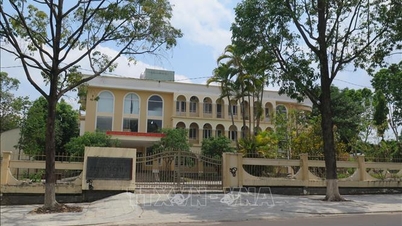
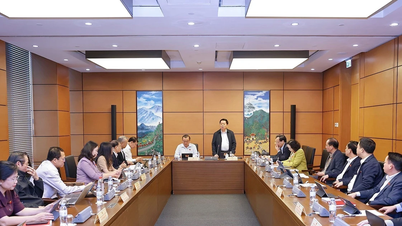

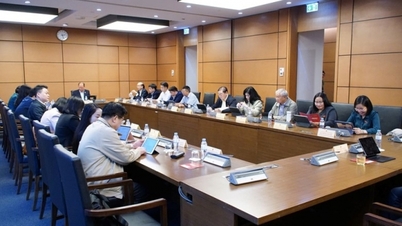



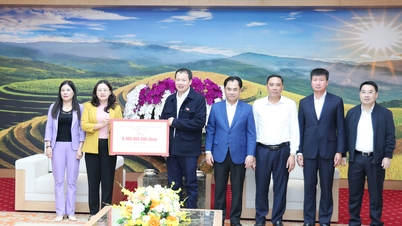

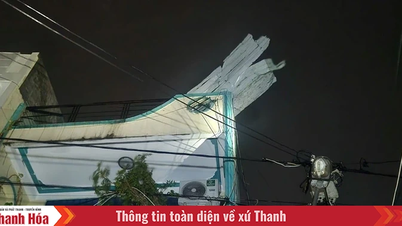




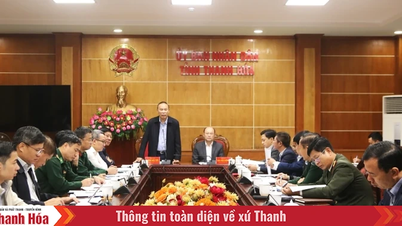
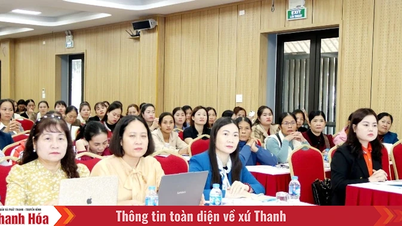





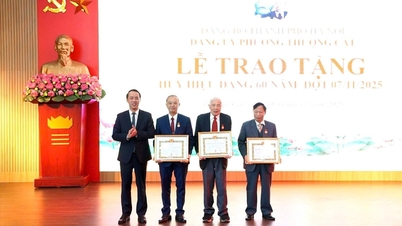
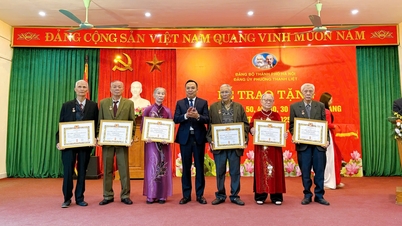

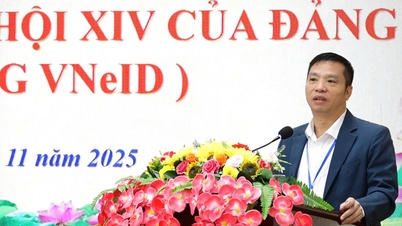
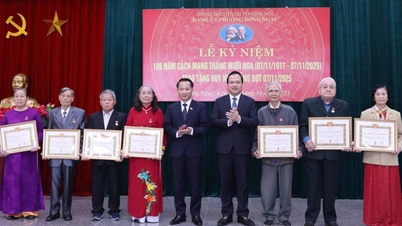




















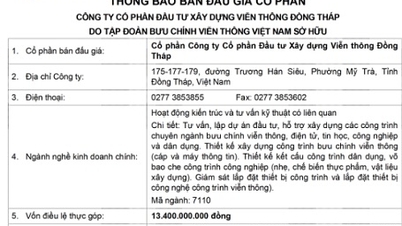

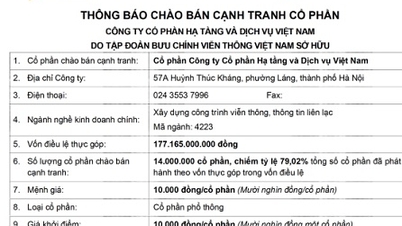












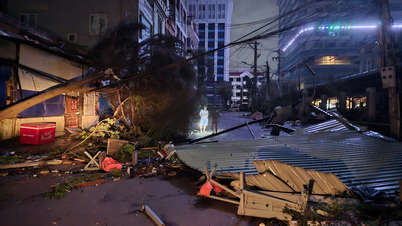












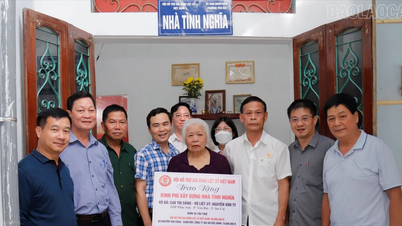








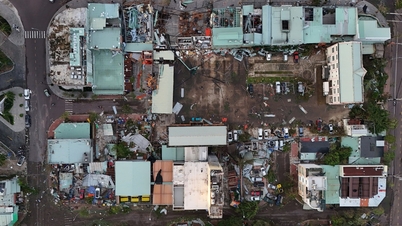


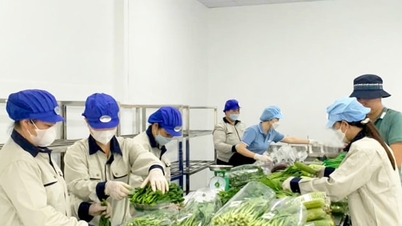










Comment (0)